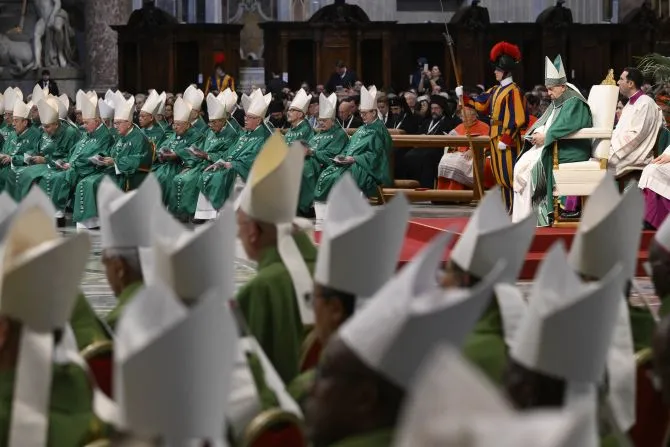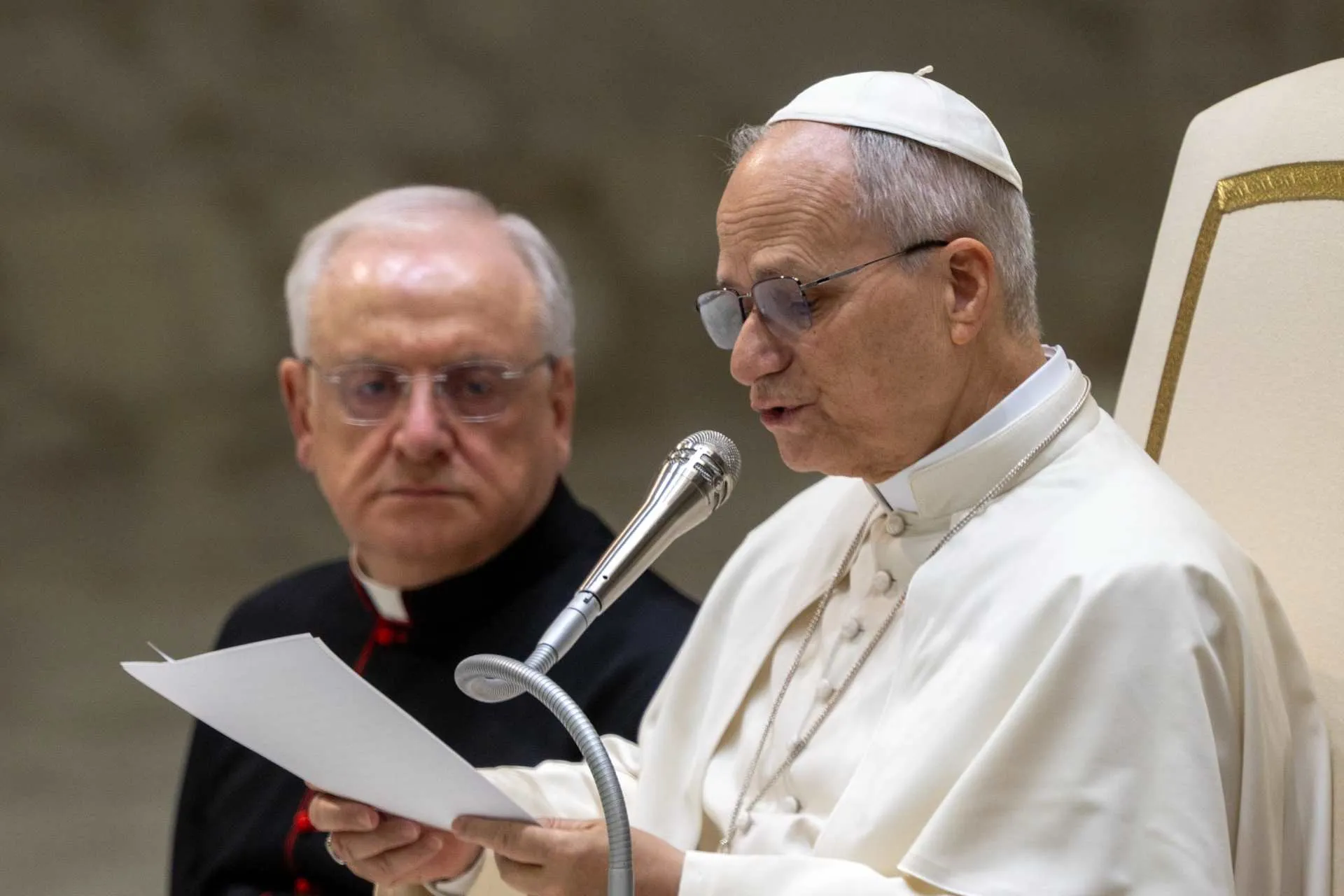“A synodal Church cannot do without their voices, experiences, and contributions. We need to understand the reasons for the resistance to synodality by some of them,” it adds.
A call to ‘bear witness’ to the synod
Rather than focusing on concrete steps, synod organizers in the last days of the assembly encouraged synod participants to “bear witness” to their experience at the synod assembly after leaving Rome.
“After a month of work, now the Lord is calling us to return to our Churches to pass on to all of you the fruits of our work and to continue the journey together,” the synthesis document says.
“Our personal accounts will enrich this synthesis with the tone of lived experience, which no page can restore. We will thus be able to bear witness to how rich the moments of silence and listening, of sharing and prayer have been,” it adds.
(Story continues below)
Father Timothy Radcliffe, the spiritual adviser for the synod assembly, told delegates in the last week of the assembly that “the most fertile time” of the Synod on Synodality will be the months of “active waiting” leading up to the final 2024 synod assembly.
Radcliffe also warned delegates not to speak negatively or sow conflict when they return home from Rome, quoting St. Paul’s letter to the Ephesians: “‘Let no corrupting talk come out of your mouths’” (Eph 4:29).
More synod documents to come
Synod organizers have said that the synthesis report voted on at the end of this month’s assembly will not serve as the working document for the 2024 synod assembly. Instead, a second Instrumentum Laboris will be written and released next year to guide the second assembly’s discussions.
It is expected that the synod assembly in October 2024 will produce and vote on a final document to advise the pope on the topic of the synod’s official theme, “For a Synodal Church: Communion, Participation, and Mission.”
Cardinal Jean-Claude Hollerich, the synod’s relator general, explained in prepared remarks for a press conference on Oct. 28 that the current synod synthesis report had already been delivered to Pope Francis and will now be “entrusted to the bishops’ conferences so that they may promote its return to the people of God living in the local Churches.”
“The process starts, really starts, at the end of the [whole] synod,” Hollerich told journalists. “So even next year, I hope there will be a document that is a real document, where also some theological questions of synodality get considered and so on.”
Courtney Mares is a Rome Correspondent for Catholic News Agency. A graduate of Harvard University, she has reported from news bureaus on three continents and was awarded the Gardner Fellowship for her work with North Korean refugees.








